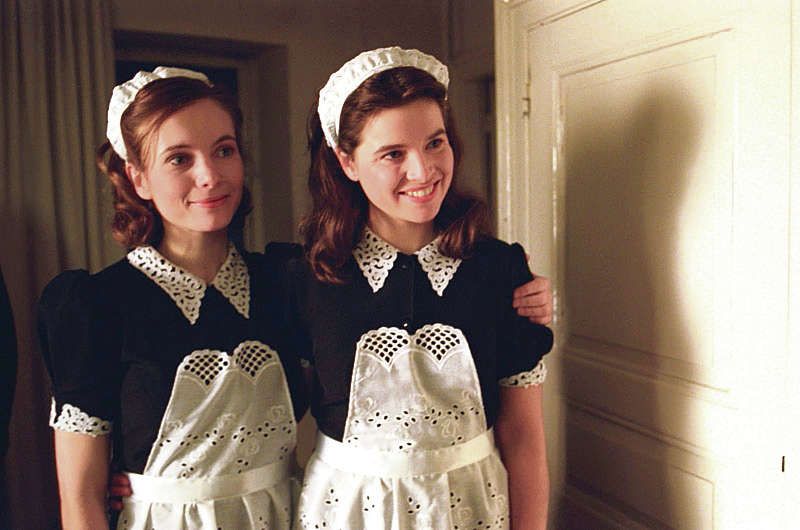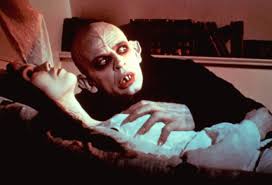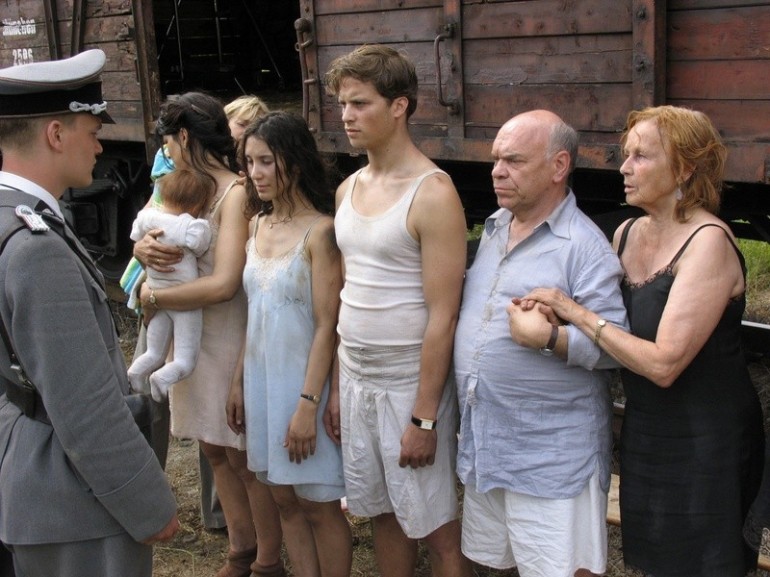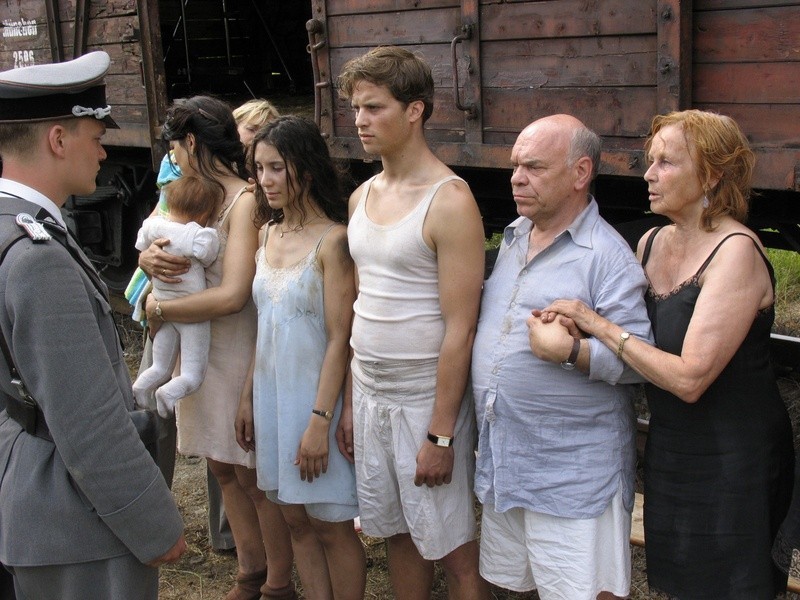
DE TWEELING. (2002) DIRECTED BY BEN SOMBOGAART.
BASED ON THE 1993 NOVEL OF THE SAME NAME BY DUTCH WRITER TESSA DE LOO.
STARRING ELLEN VOGEL AND GUDRUN OKRAS.
REVIEW BY SANDRA HARRIS. ©
This is a gorgeous, stunning-looking film about World War Two, currently on Netflix. I find it most heartening that, rather than losing interest in Nazi Germany, World War Two and the Holocaust now that the waters have finally closed over most of the players, writers and film-makers are still mining that period for books and films.
There’s so much excellent source material still available in the form of memoirs and diaries by the people who lived through it; really, there should be enough ideas in these to keep the novelists and film-makers busy indefinitely.
Anna and Lotte Bamberg are two Dutch twin sisters who are separated in the 1920s when their beloved father dies. Although the separation is immensely traumatic for them both, Lotte certainly gets the better deal of the pair of them.
She is brought to Amsterdam and brought up by an intellectual middle-class family who worship her. Her physical needs are met, and she is encouraged to grow creatively as well, impressing visitors with her singing and piano-playing. When she grows up, she falls in love with a Jewish man called David, even though she herself is not Jewish.
Anna, poor Anna, remains in Germany and is ‘reared’ by Catholic peasant relatives who use her as slave labour on their farm. The mother, permanently knocked-up because of their Catholic beliefs, torments her verbally and emotionally by telling her that her cherished twin sister is, by turns, dead, and reluctant to make contact with her filthy dirty farm peasant of a sister.
After a particularly bad beating from the farmer, the father of the family, who almost looks as if he’s about to add sexual assault to his crimes, Anna is removed from their ‘care’ by the local priest and taken to a domestic science school run by kindly nuns. After three years of training, she becomes maid to a German countess who is fleeing to her country estate in case the British RAF start bombing the major German cities.
Lotte and Anna have a glorious reunion in Germany while Anna is still with the countess and her family. They are upset to discover that their adopted families contrived to keep them apart while they were growing up, but now they are determined to never lose touch with each other again.
Until, that is, a throwaway remark by Anna that Lotte interprets as anti-Semitic drives a wedge between them that Lotte never explains to her confused sister. Then, when the war is over and Lotte discovers that Anna was married to an officer of the Waffen SS, part of the Nazi machinery that murdered Lotte’s fiancé David in Auschwitz, the sisters don’t see each other again until a chance meeting at a spa some fifty-five or sixty years later…
It’s interesting the way that Lotte blames Anna for what has happened to David, just because she was married to an SS man. We all know what the SS did in the war, but how guilty, if at all, were their wives and fiancees, their parents and siblings? Can you be found guilty by association?
Anna is referred to by a total stranger after the war as ‘a dirty Hun.’ Is she responsible for what her husband did in the war? The chances are that she didn’t know. When the Einsatzgruppen, the SS paramilitary death squads responsible for murdering millions of Jews and others in the ‘Holocaust by shooting,’ went East towards Russia to do the devil’s work, the individual members probably didn’t mention when writing home exactly what they’d been ordered to do there.
Men are more than capable of keeping unpleasant facts from the ‘little woman back home’ when they have to. This I know to be an indisputable fact. Anna says herself that she married the man she loved and not an SS man, but Lotte doesn’t see the distinction.
There won’t be a reconciliation until two very old ladies meet in a luxury spa and get lost in the beautiful winter woods together some fifty-odd years later, and, even then, some very old ladies can be pretty damn stubborn. They have some serious talking to do before they can come to an understanding of each other and finally lay the past to rest.
This marvellous Dutch-language film was nominated for an Oscar for Best Foreign Film at the 2003 Awards. It also won the Golden Calf, the Dutch Film Festival Award, for Best Feature Award.
I’d say it’s more of a women’s film than a man’s, but that shouldn’t stop anyone who wants to from watching and enjoying it. Thanks to the men who fought Hitler, we- mostly- still live in free countries.



